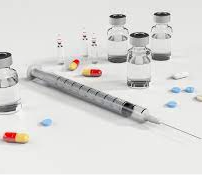Pre-Diabetes; Are you at risk? by Jesus Chirino

Pre-Diabetesm, Are you at risk? by Jesus Chirino When your blood glucose levels are higher than normal but not high enough to be considered diabetes, you have a condition known as impaired glucose tolerance, or pre diabetes. Pre diabetes is usually accompanied by insulin resistance, and most people that are diagnosed with it go on to develop type 2 diabetes within a 10 year period. Are You At Risk? If you are over 45 years of age, are overweight, have a history of diabetes or gestational diabetes, have high blood pressure or are from a minority group with a higher risk of diabetes (Hispanic, African American, American Indian, Asian American/Pacific Islanders), you are at a higher risk of having pre diabetes and developing diabetes. Detecting Pre Diabetes Two tests are mainly used in detecting the presence of pre-diabetes: In a fasting plasma glucose test, fasting glucose levels between 100 and 125 mg/dl are considered pre diabetes; higher levels will indicate the prese...






